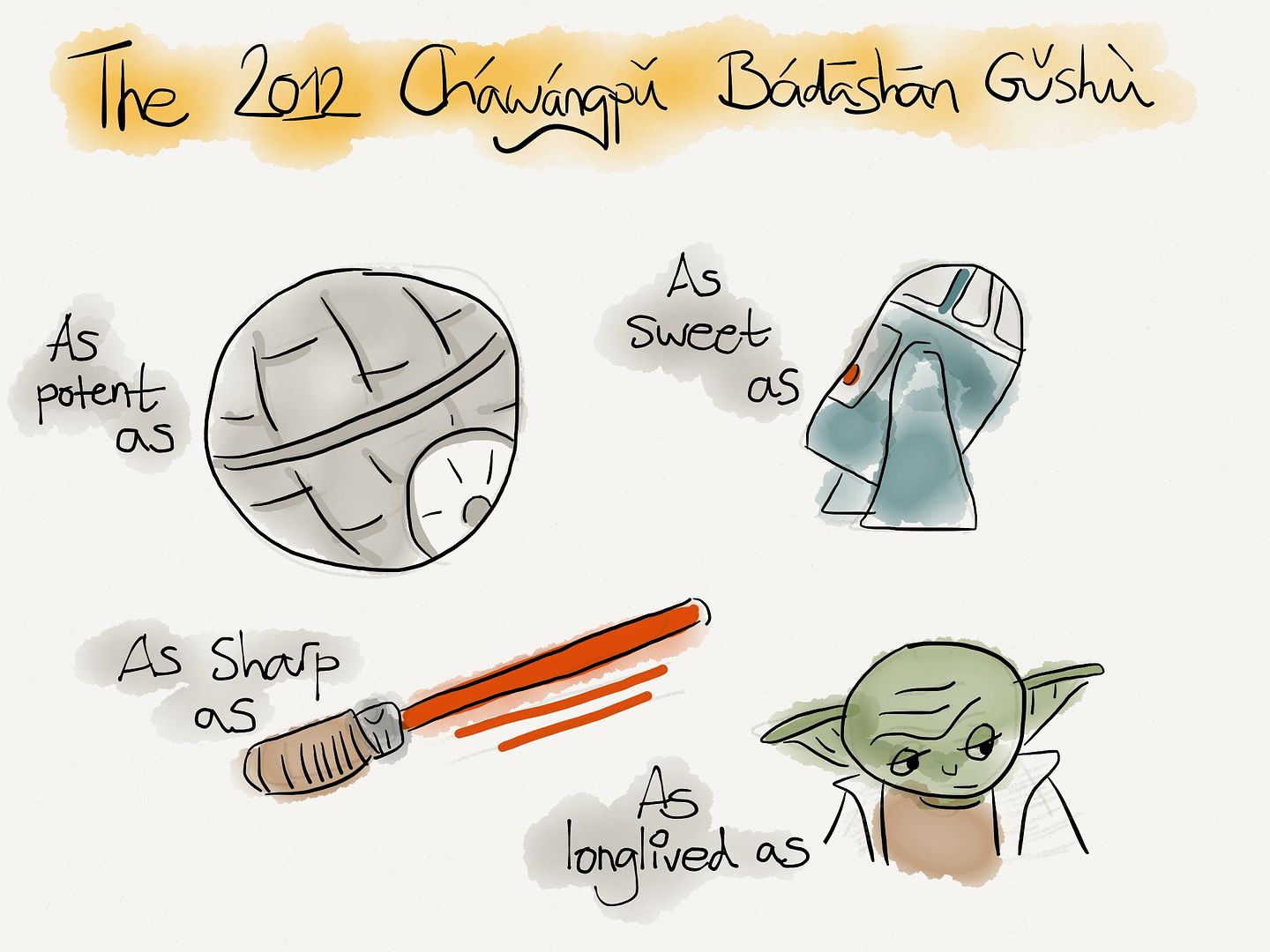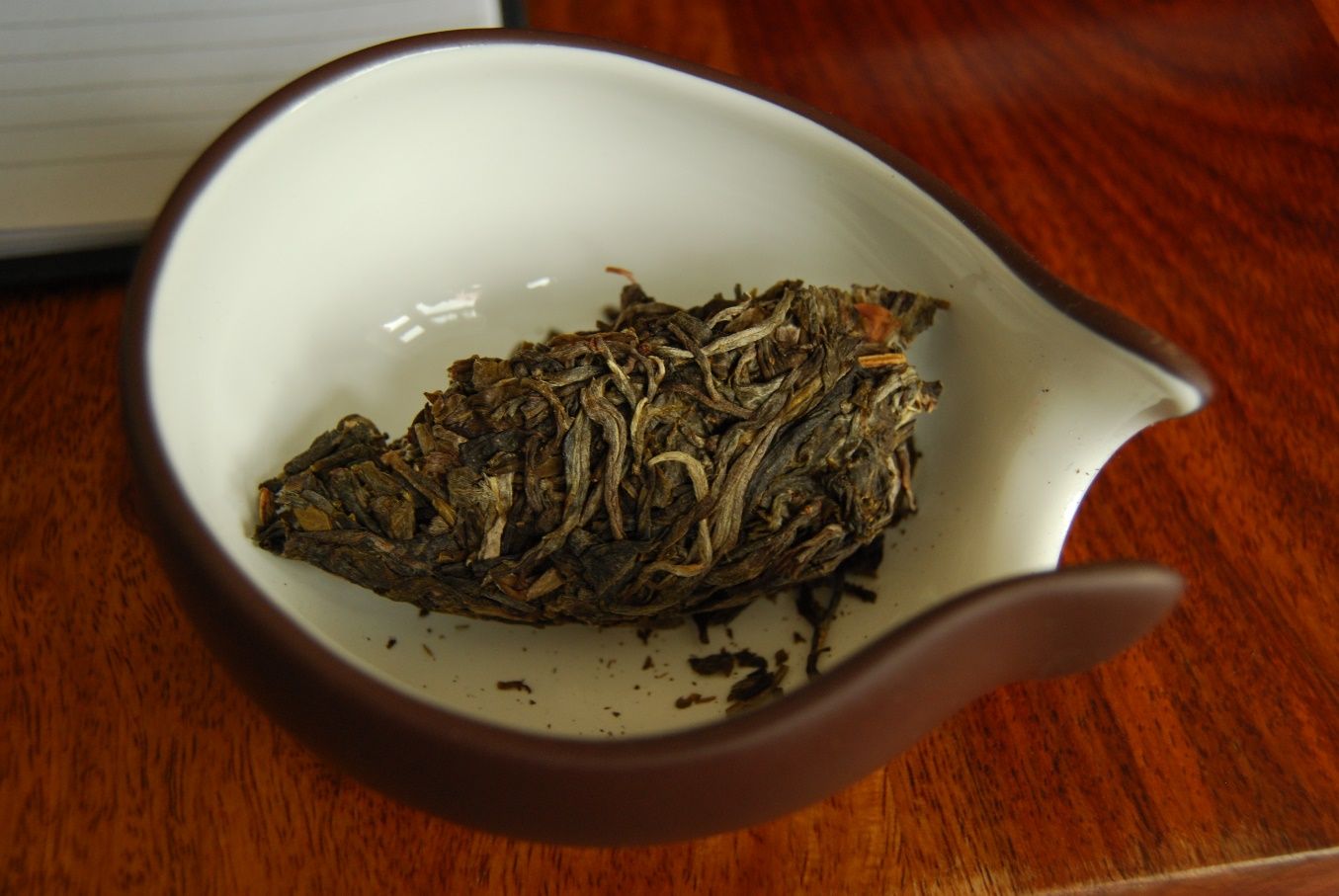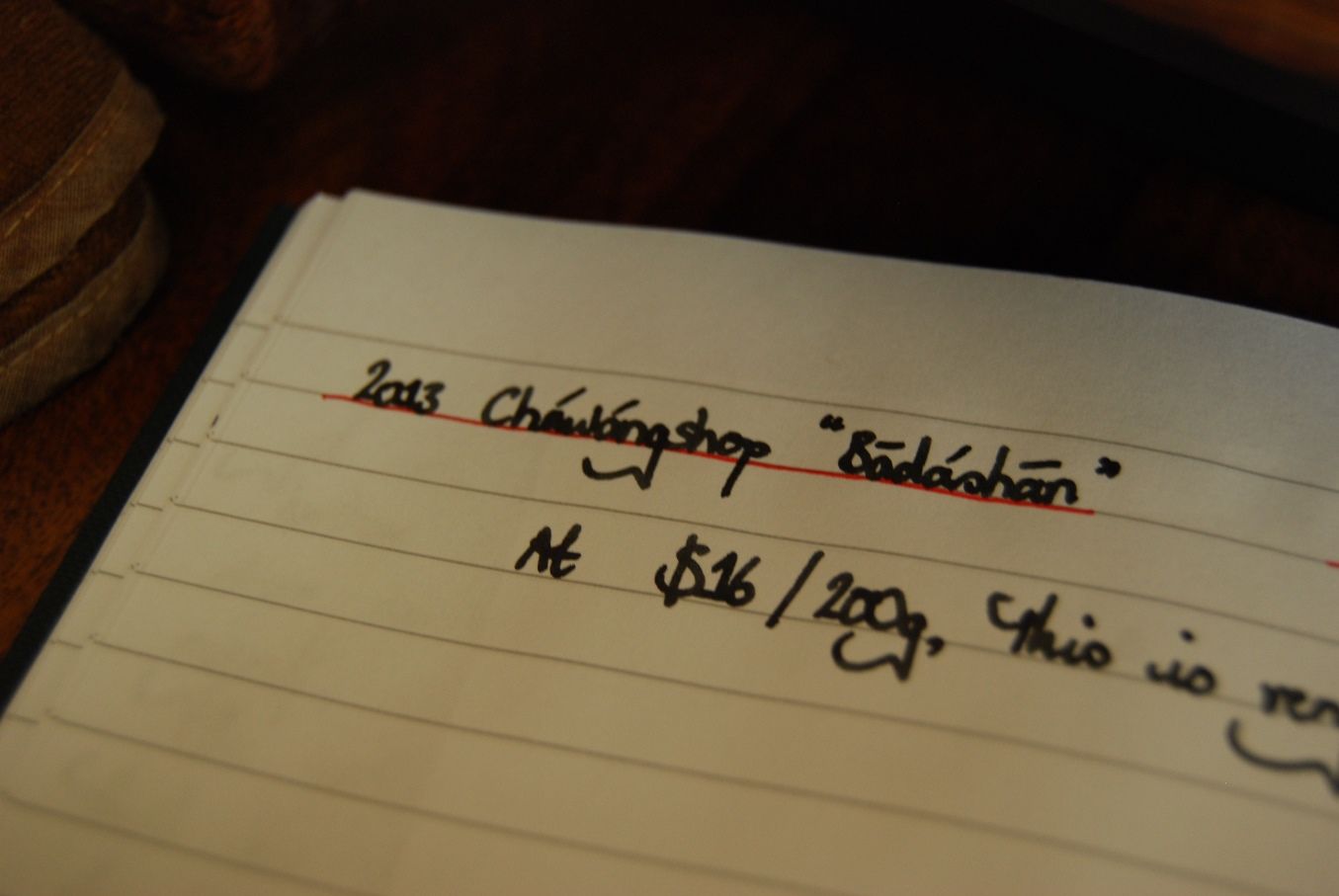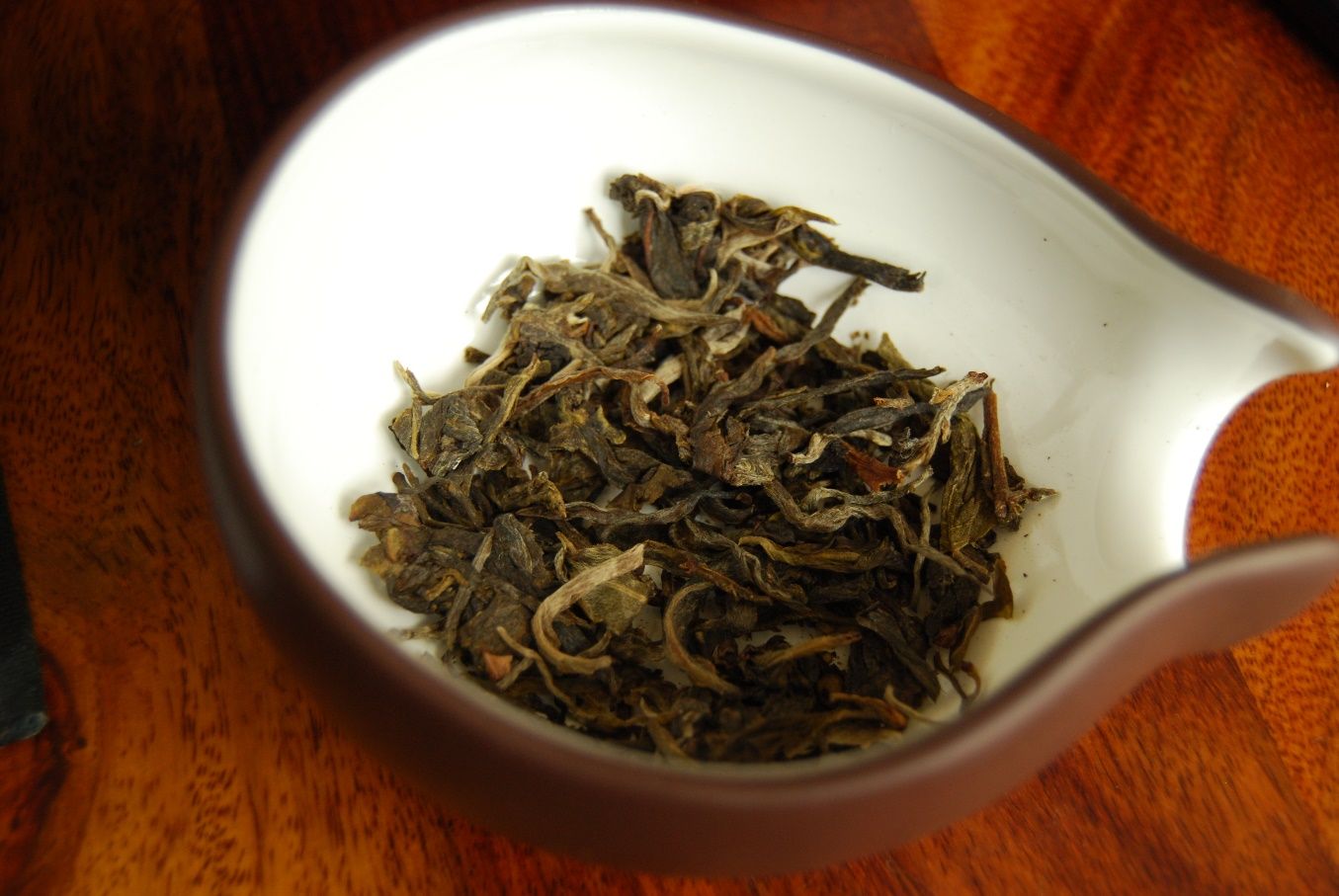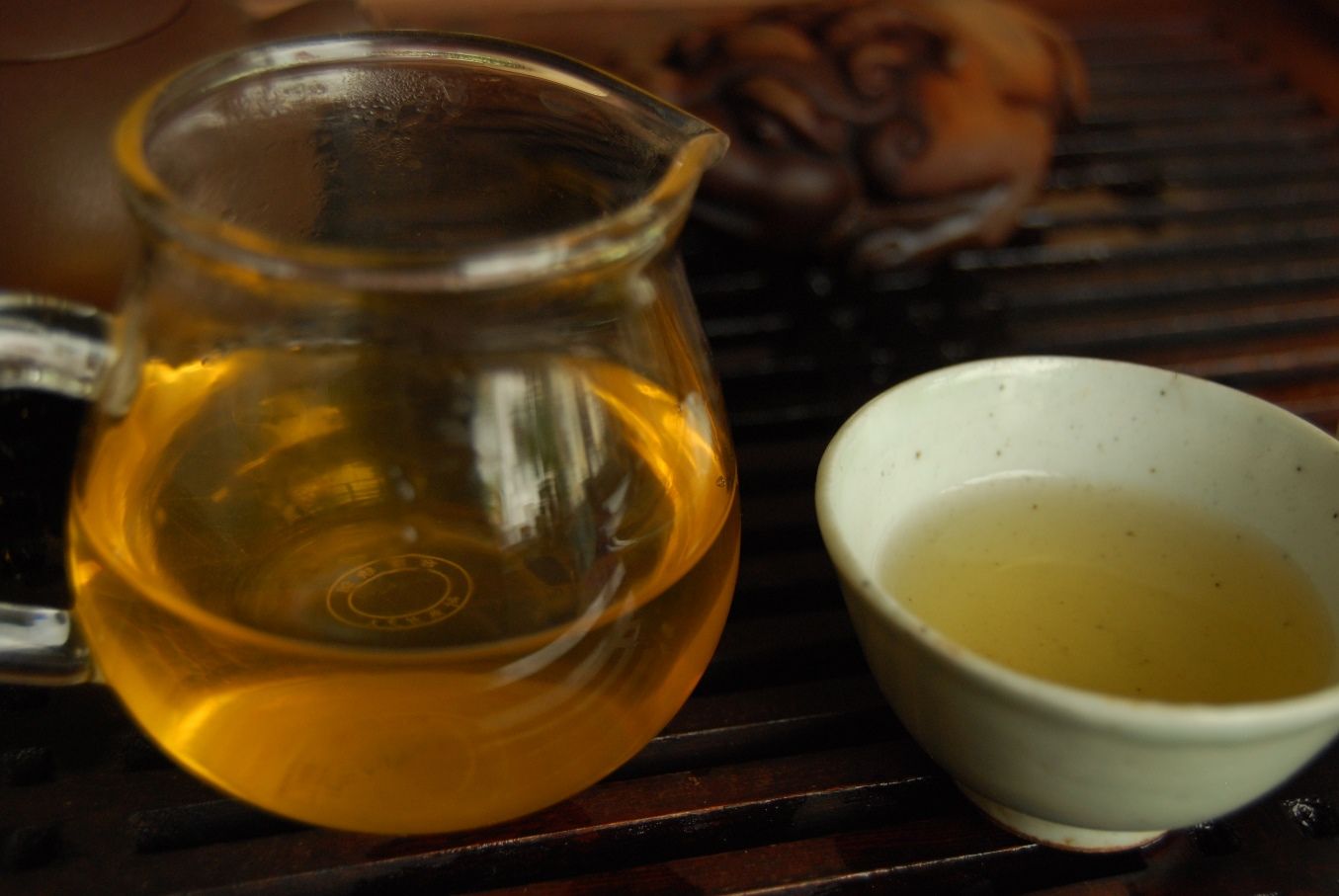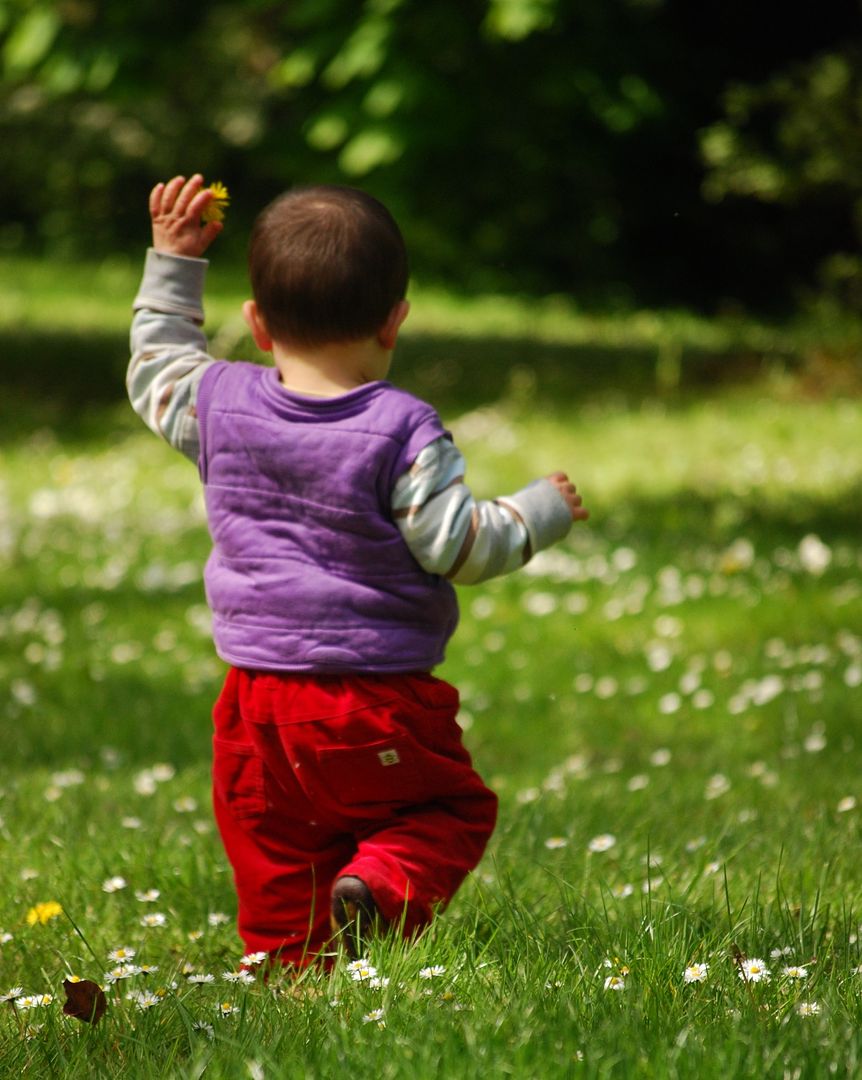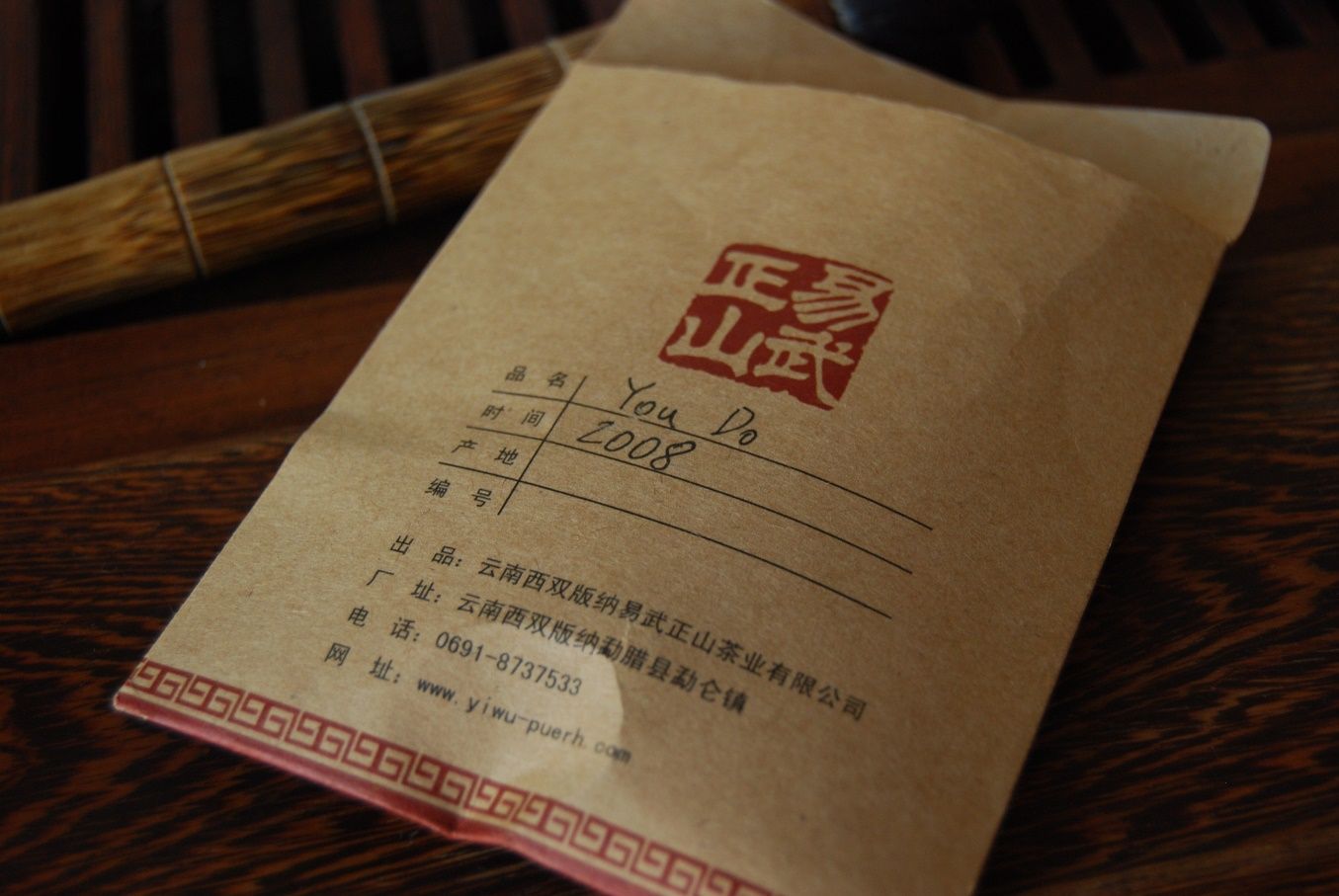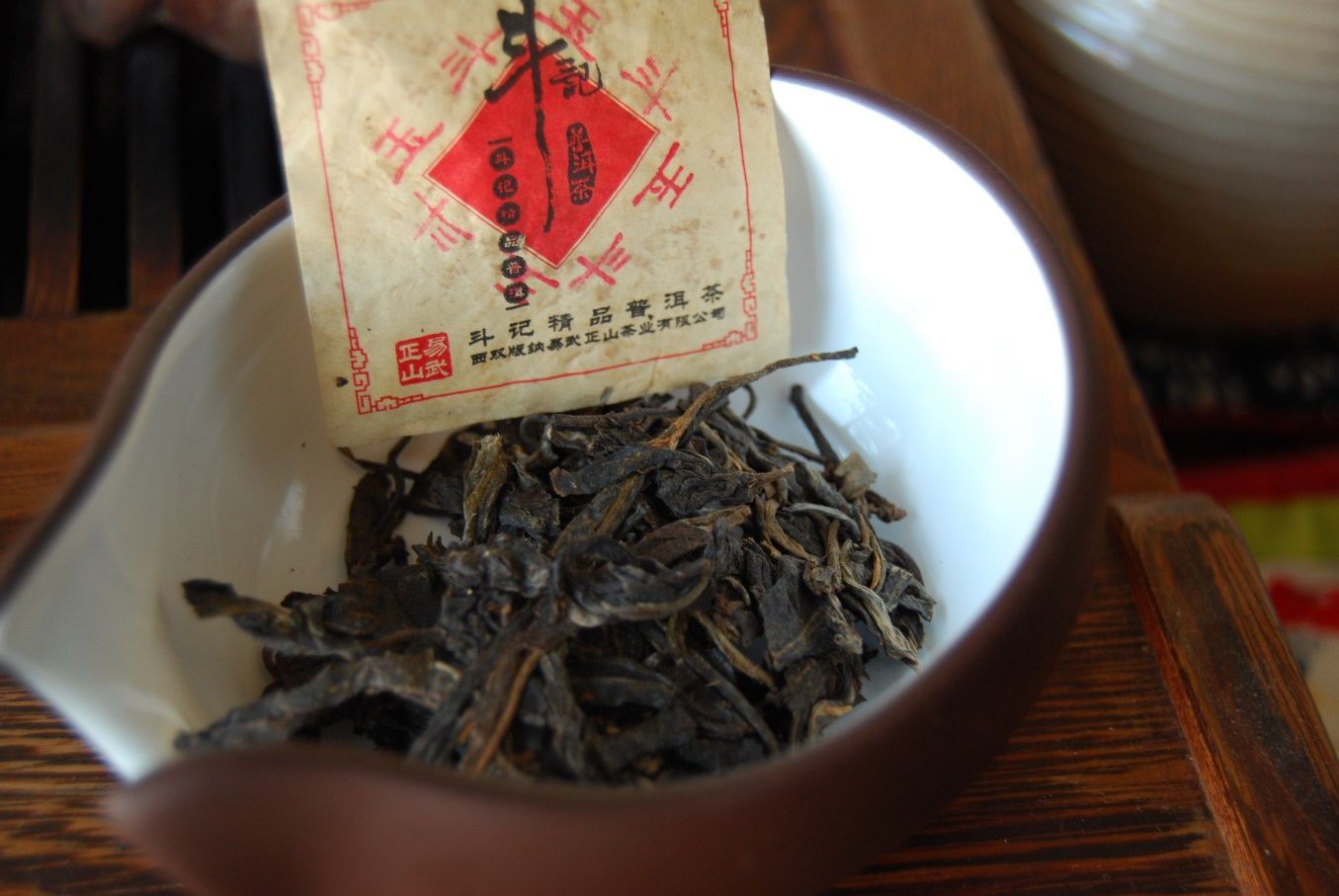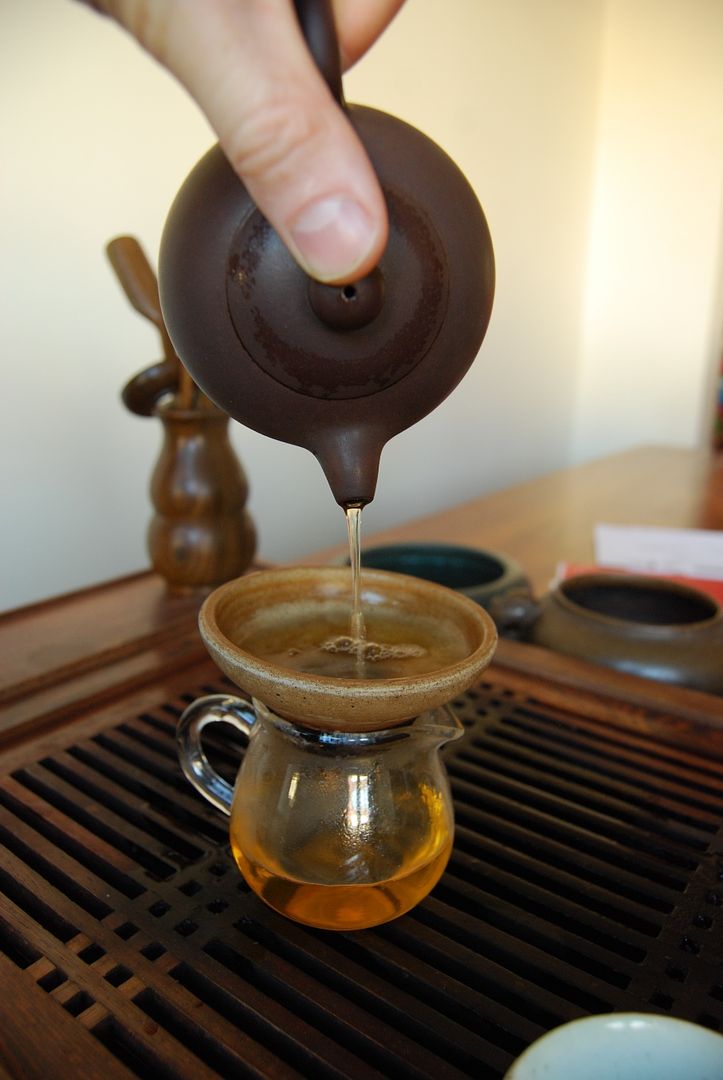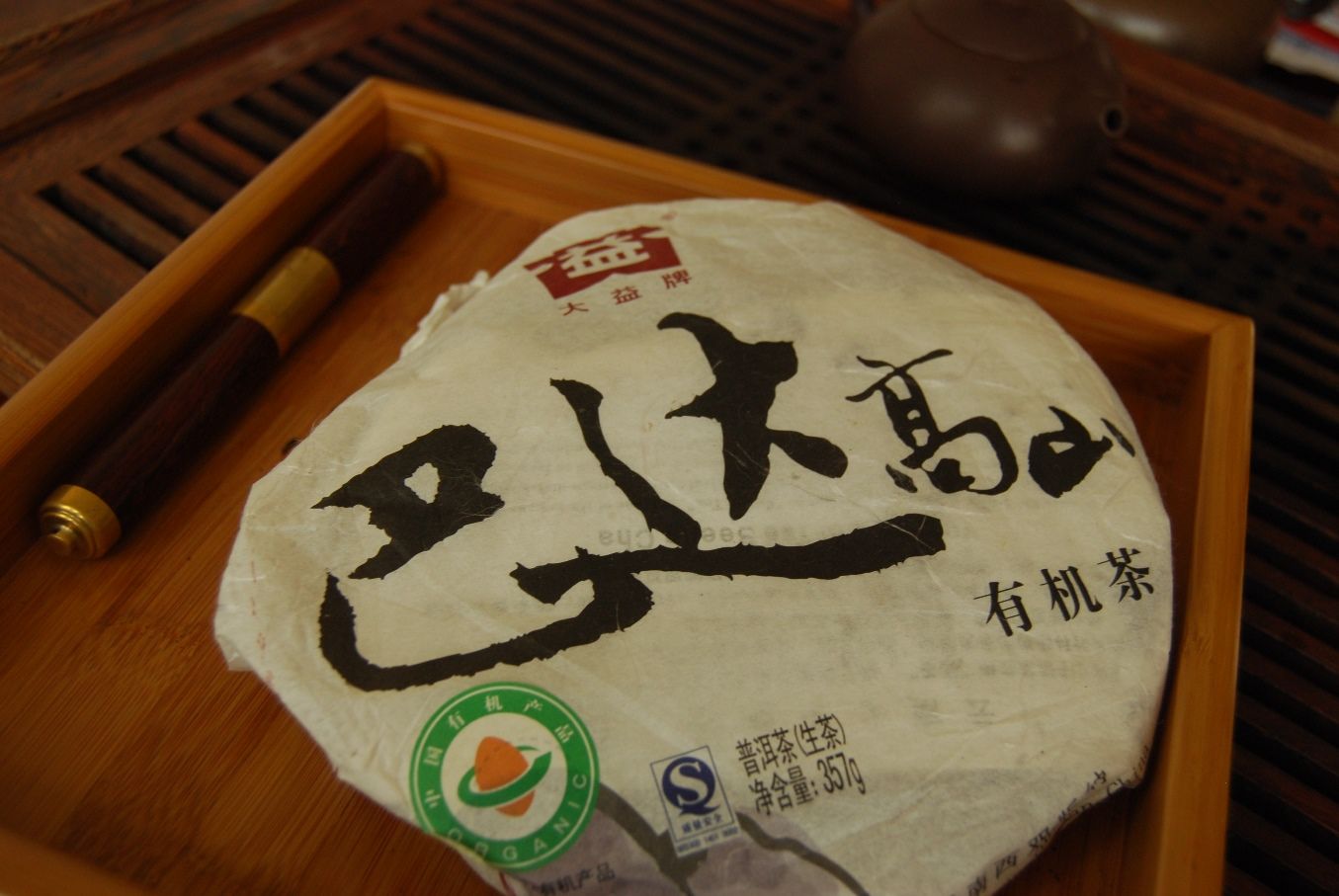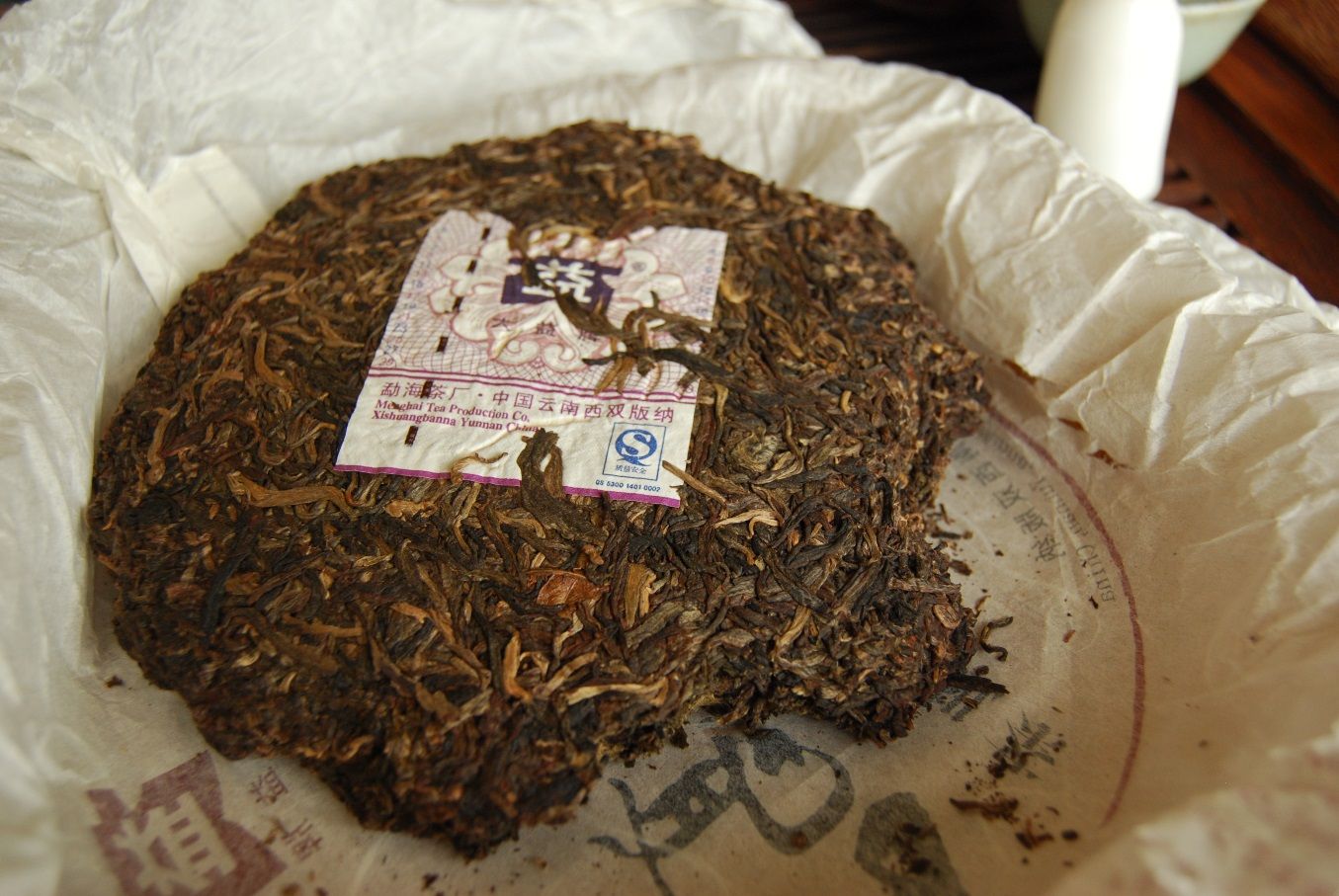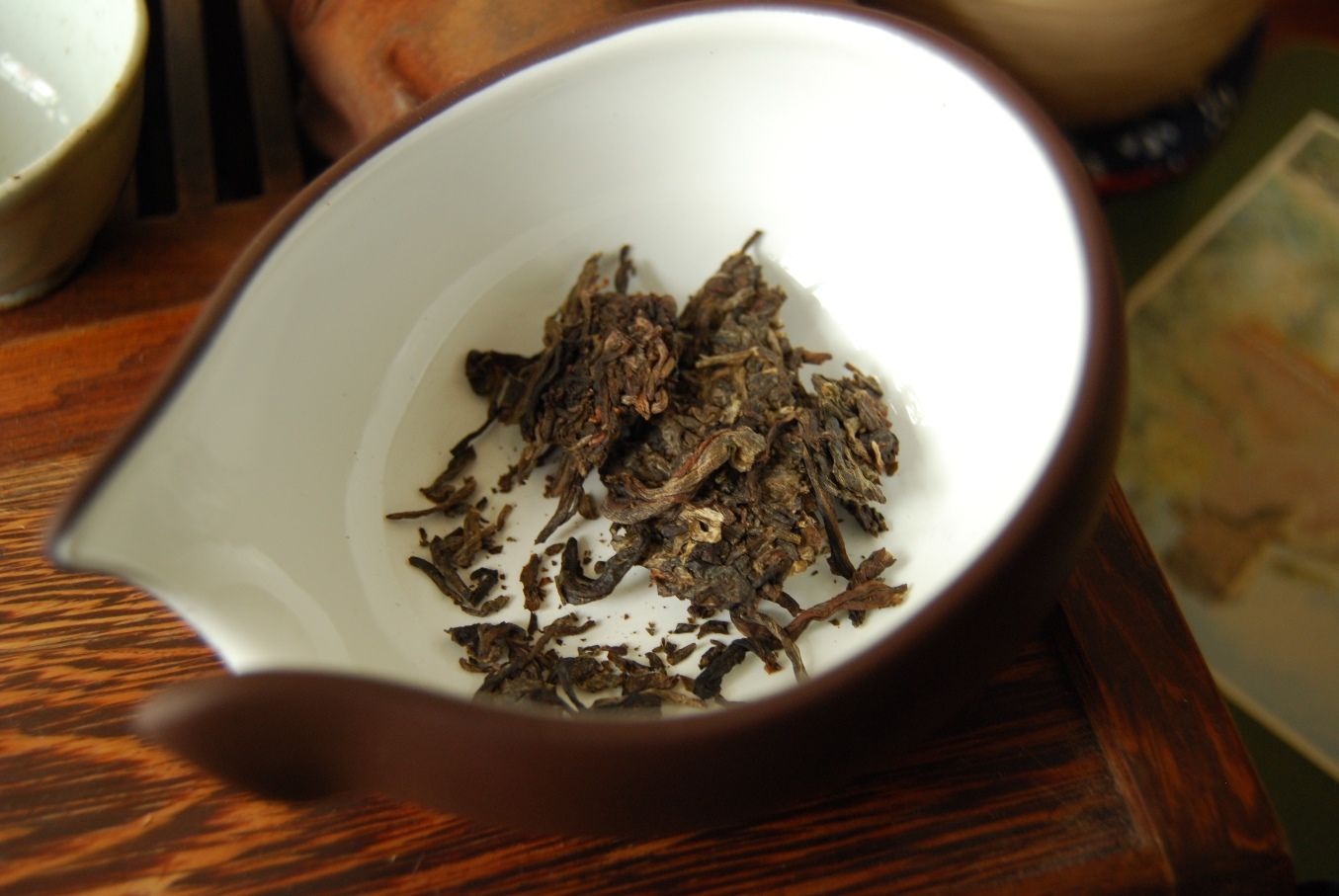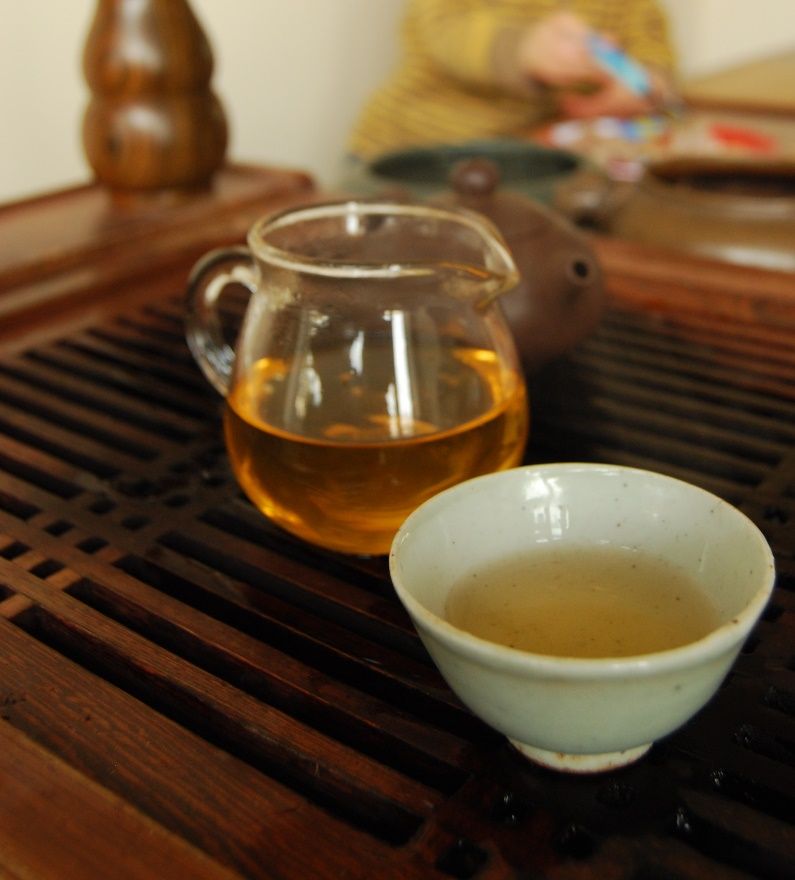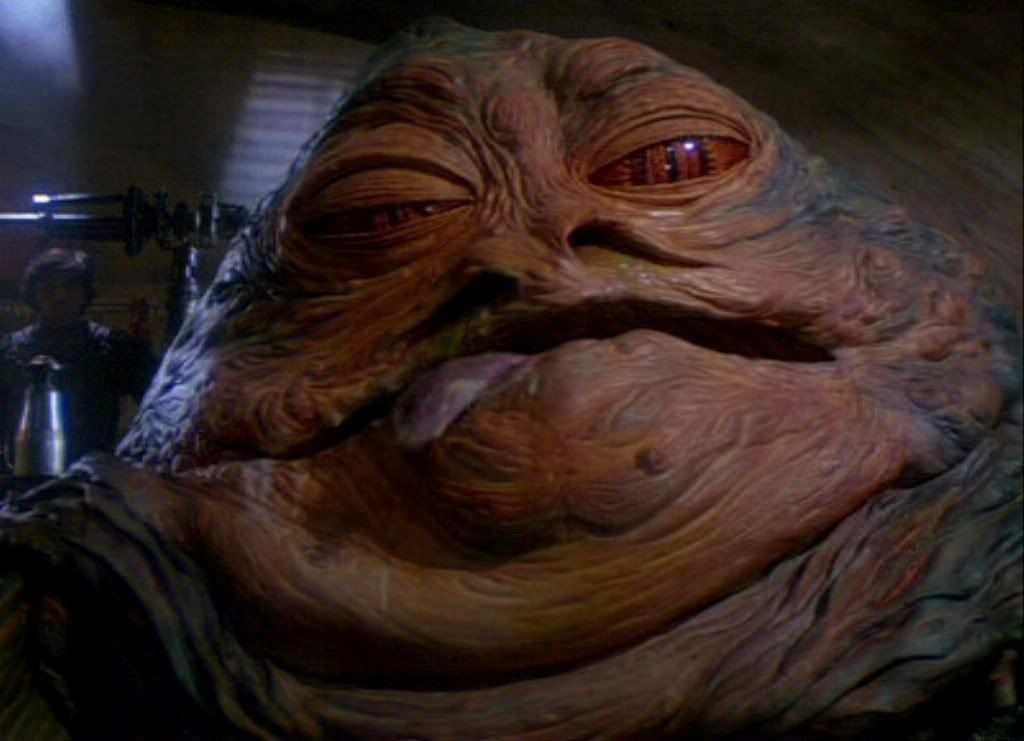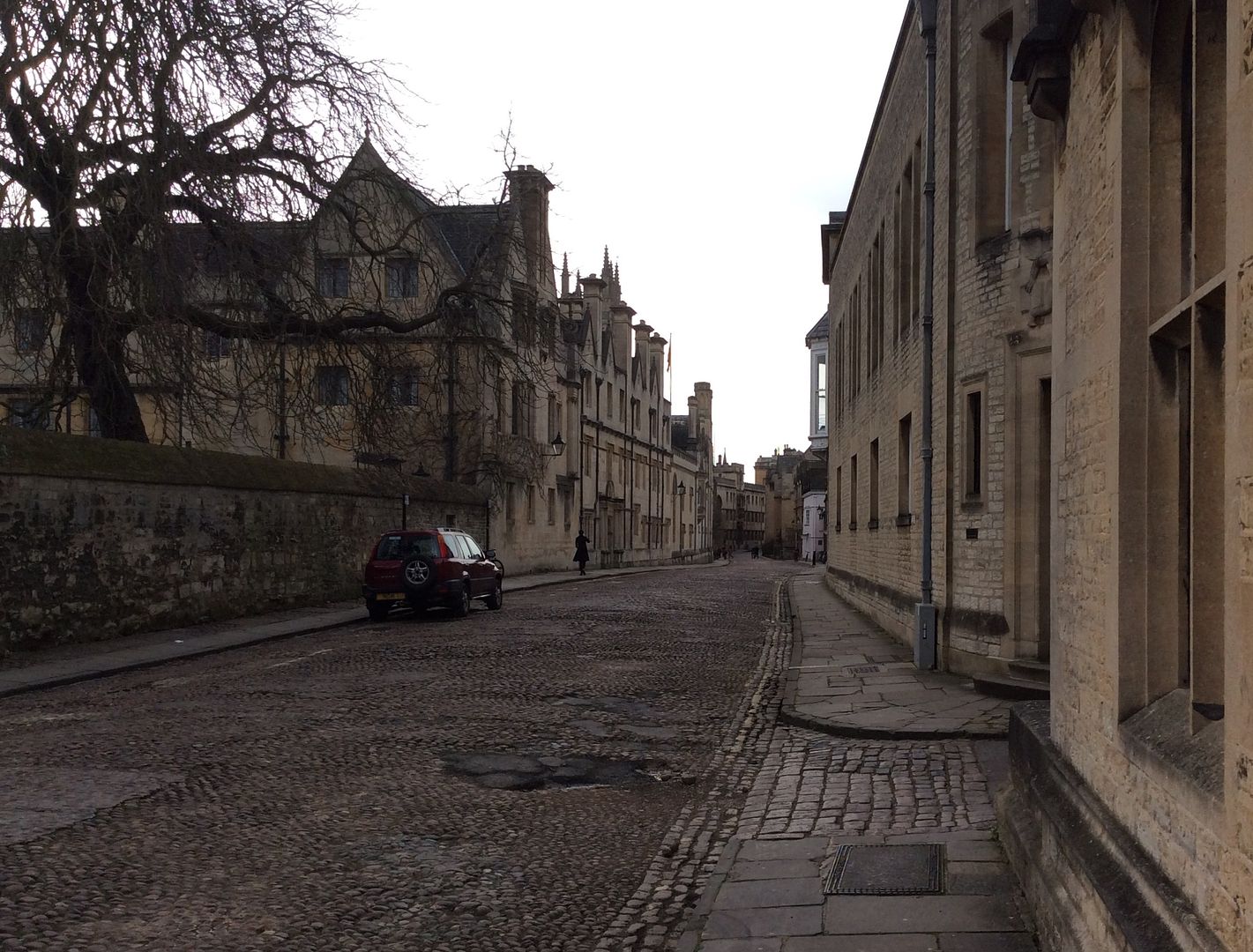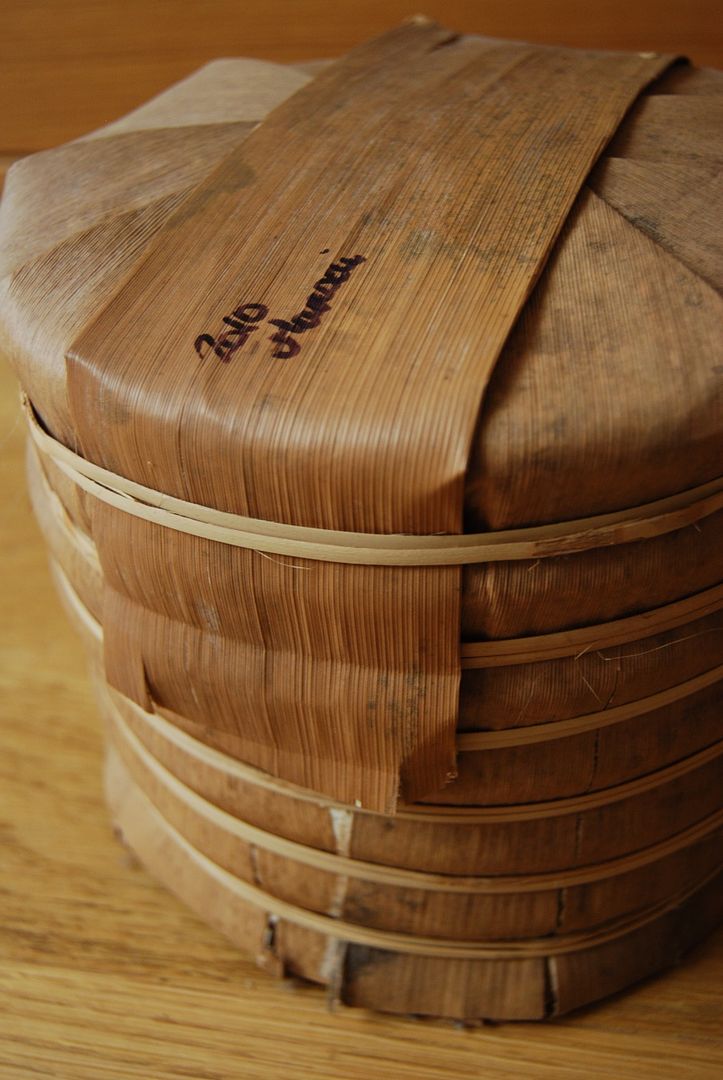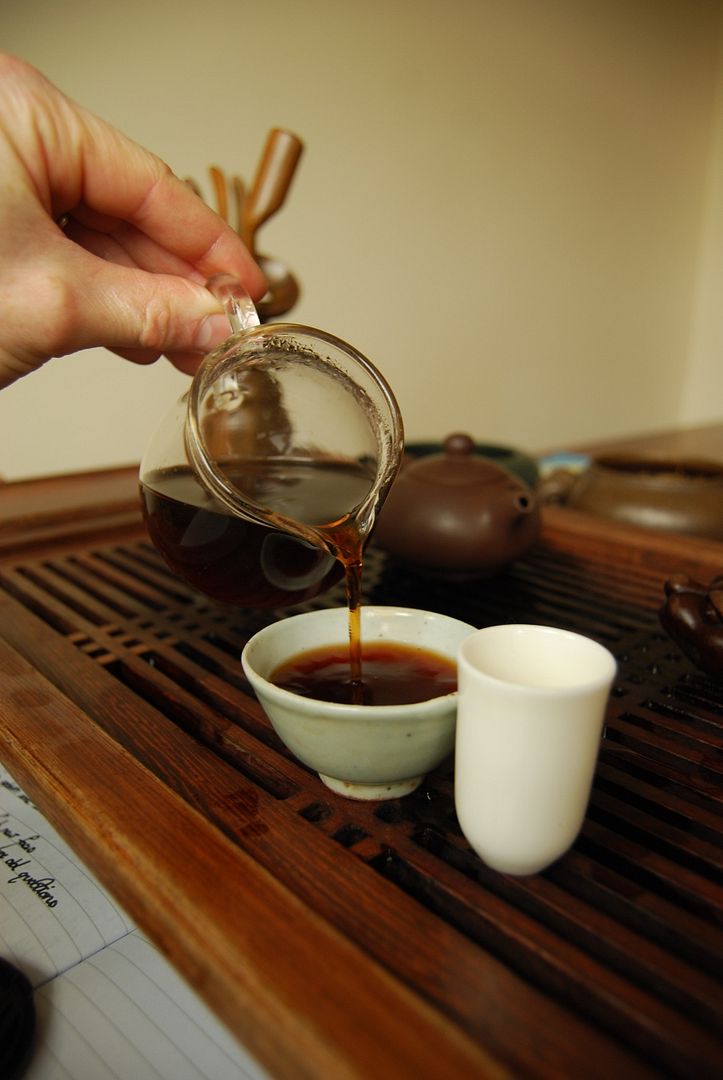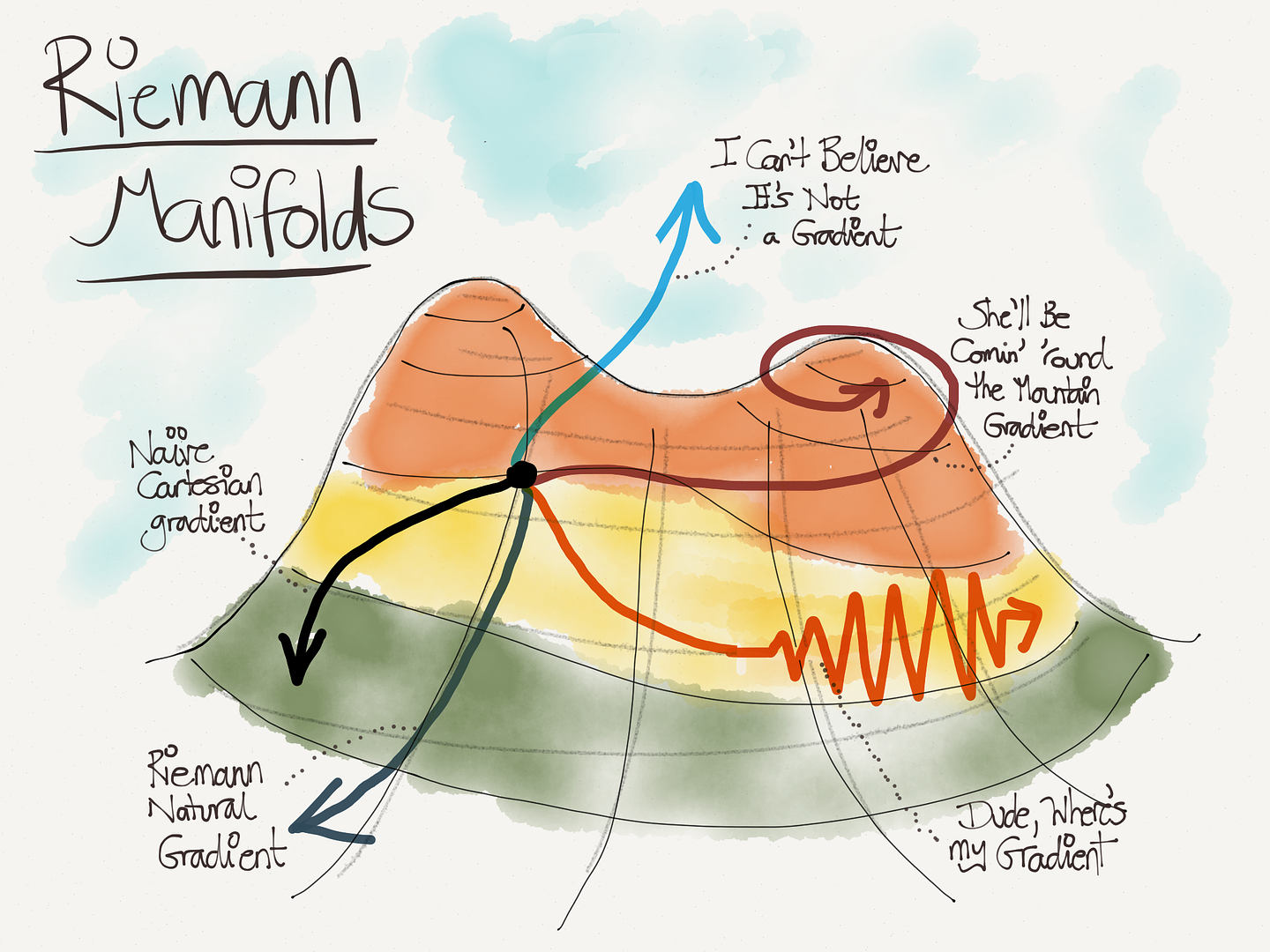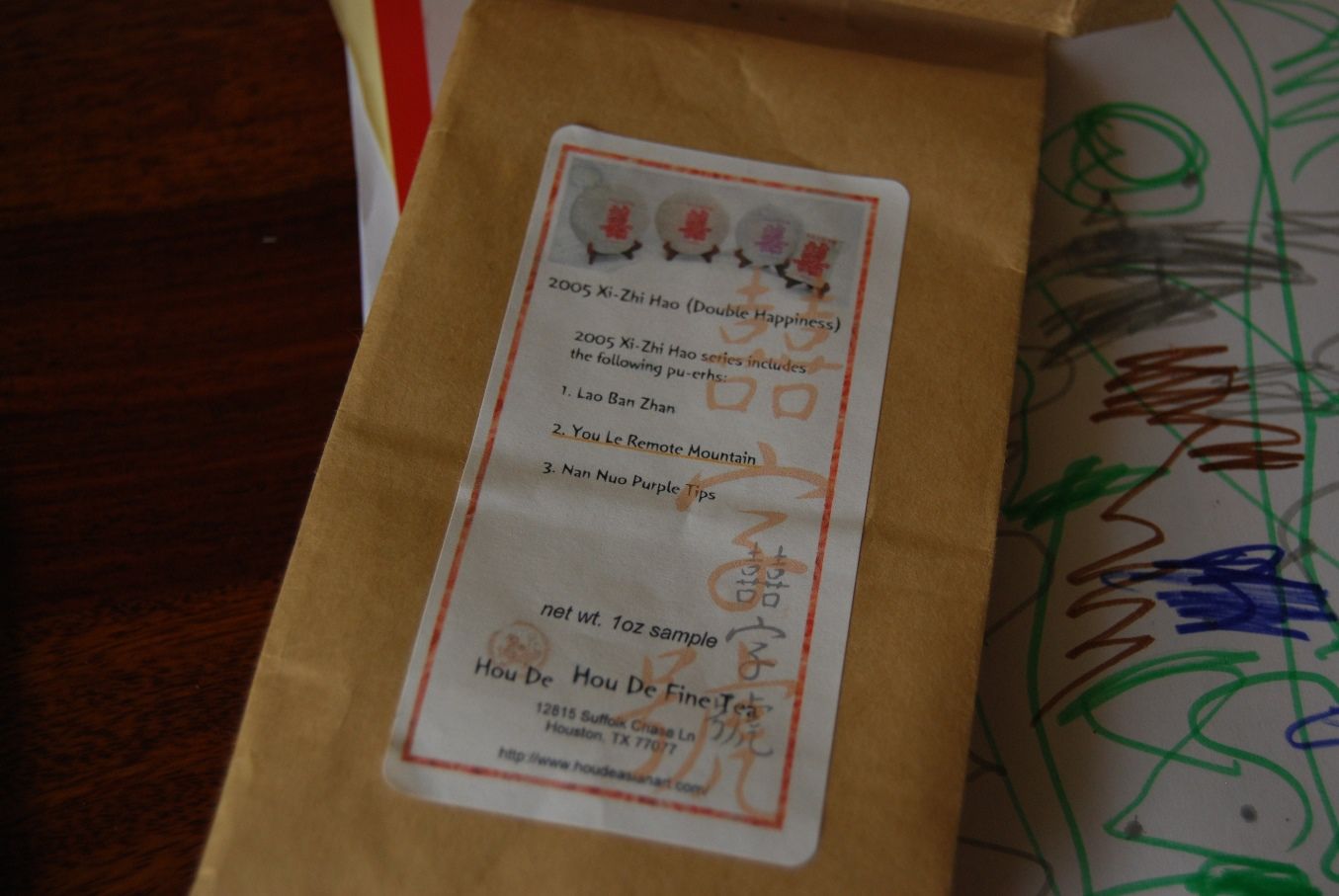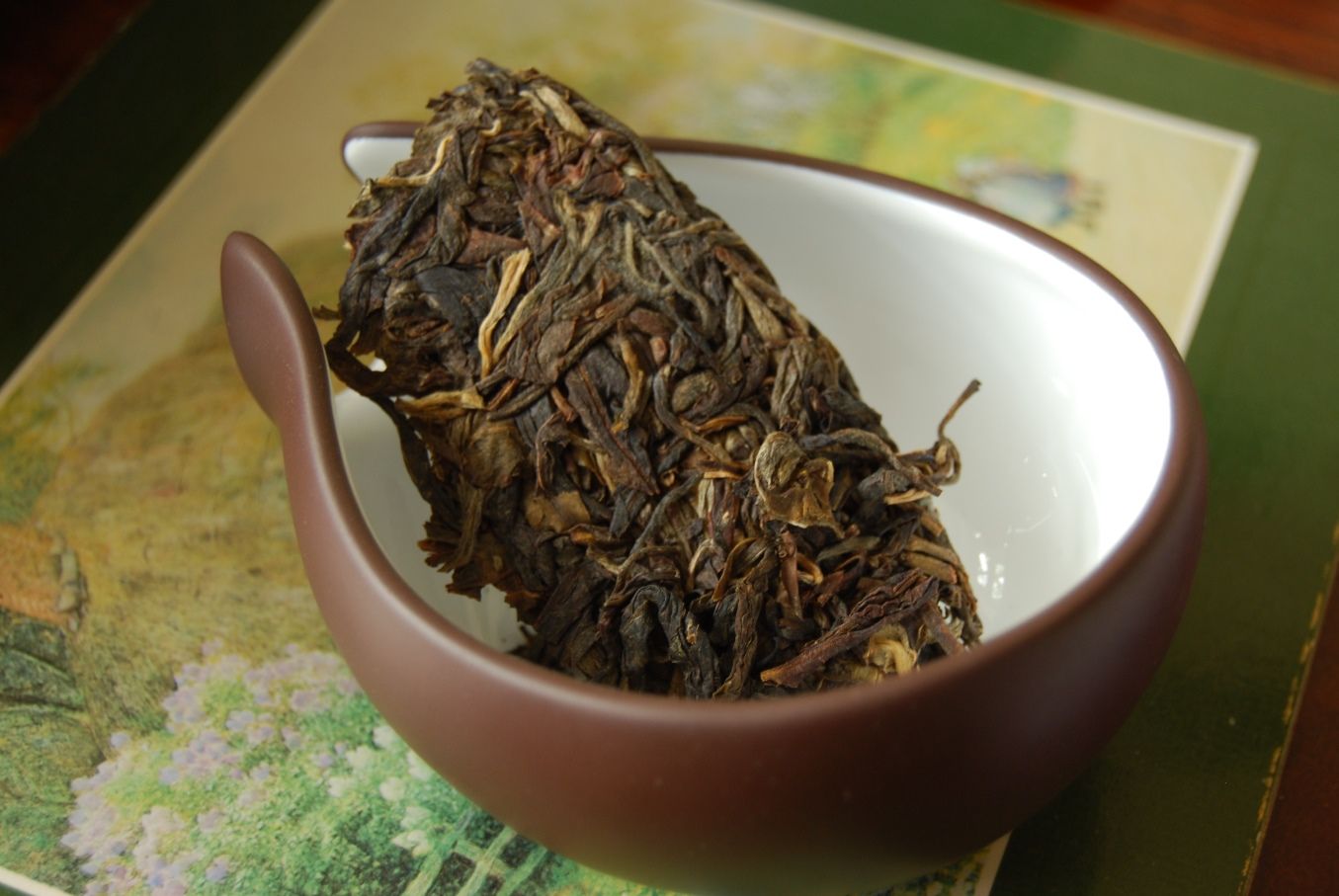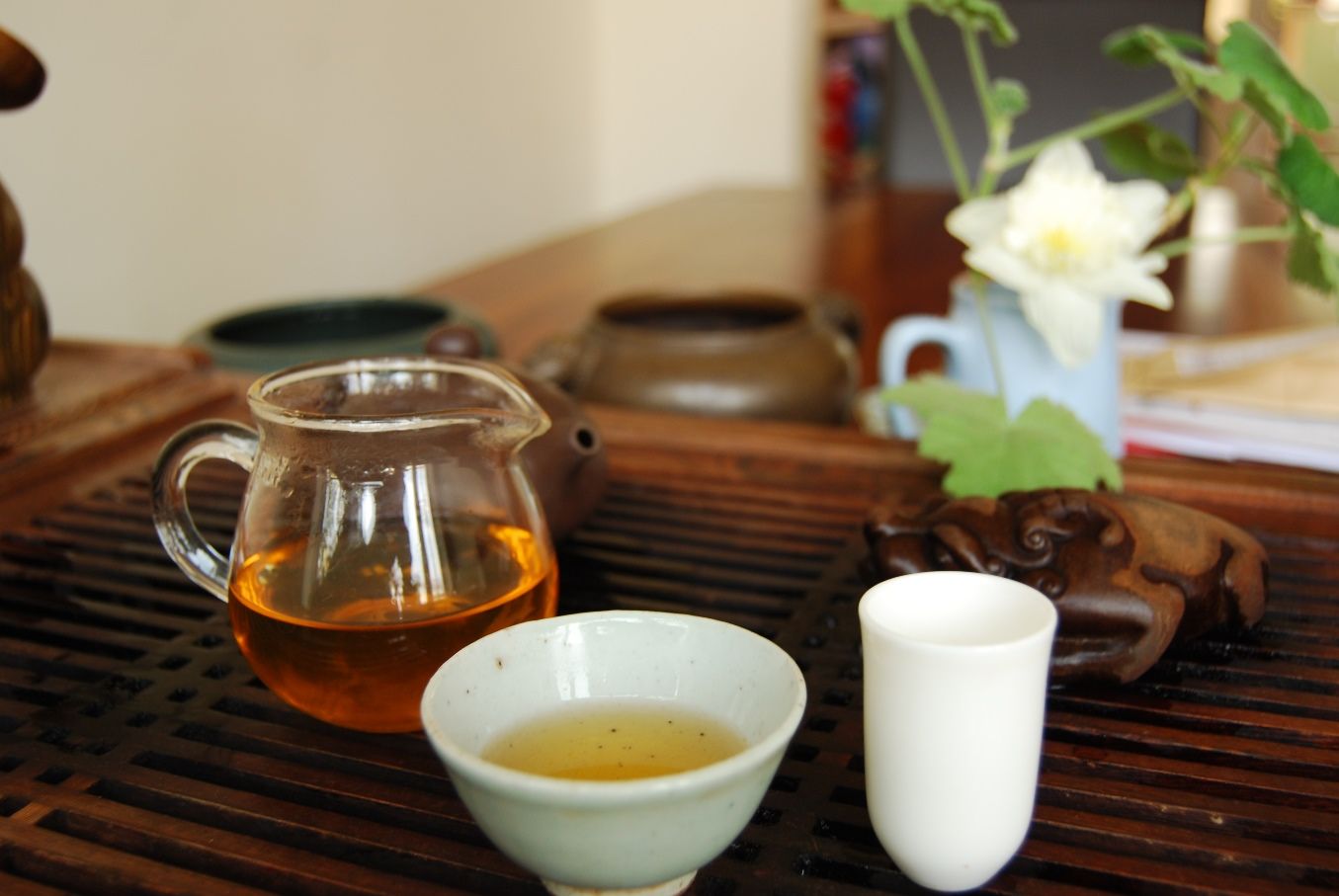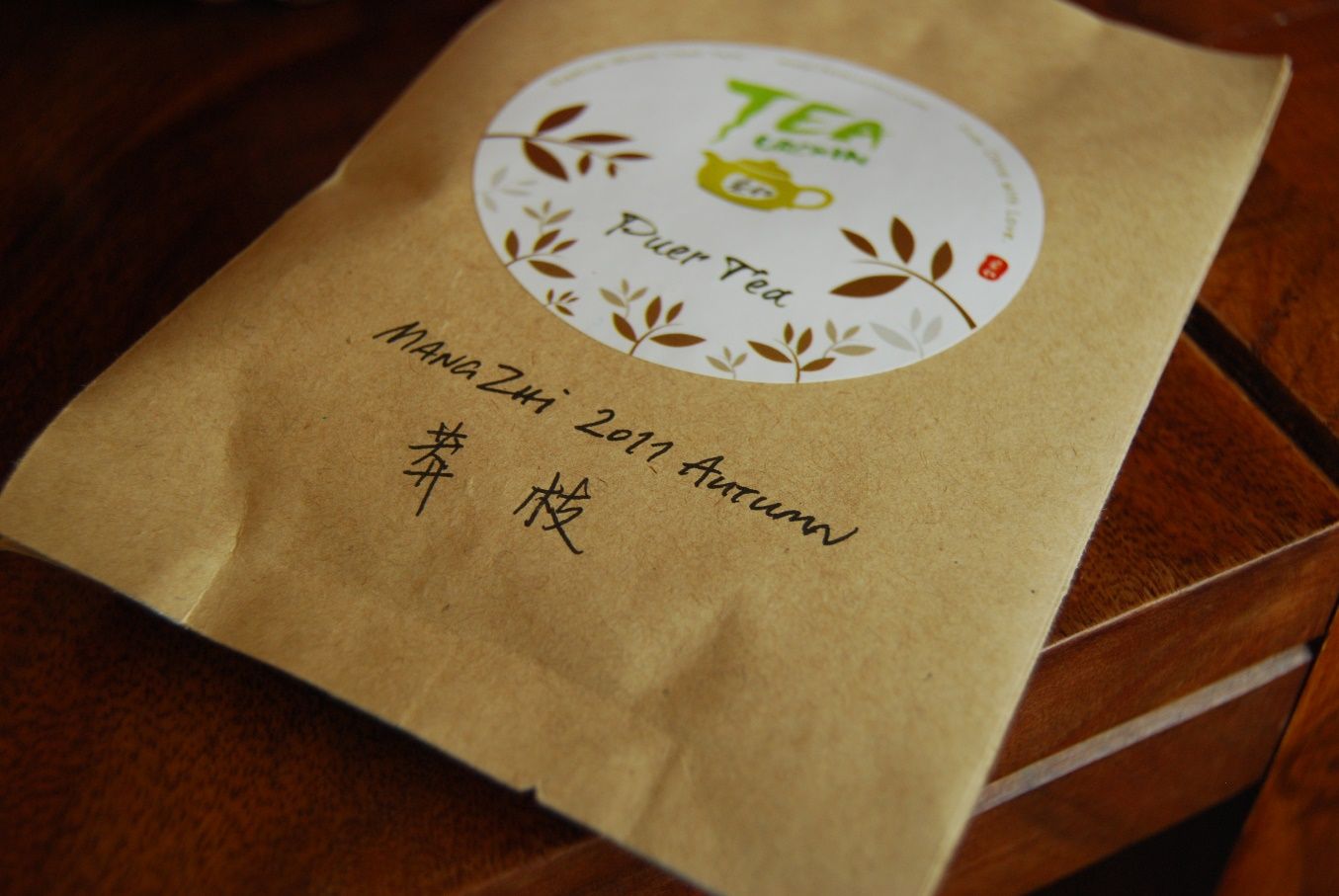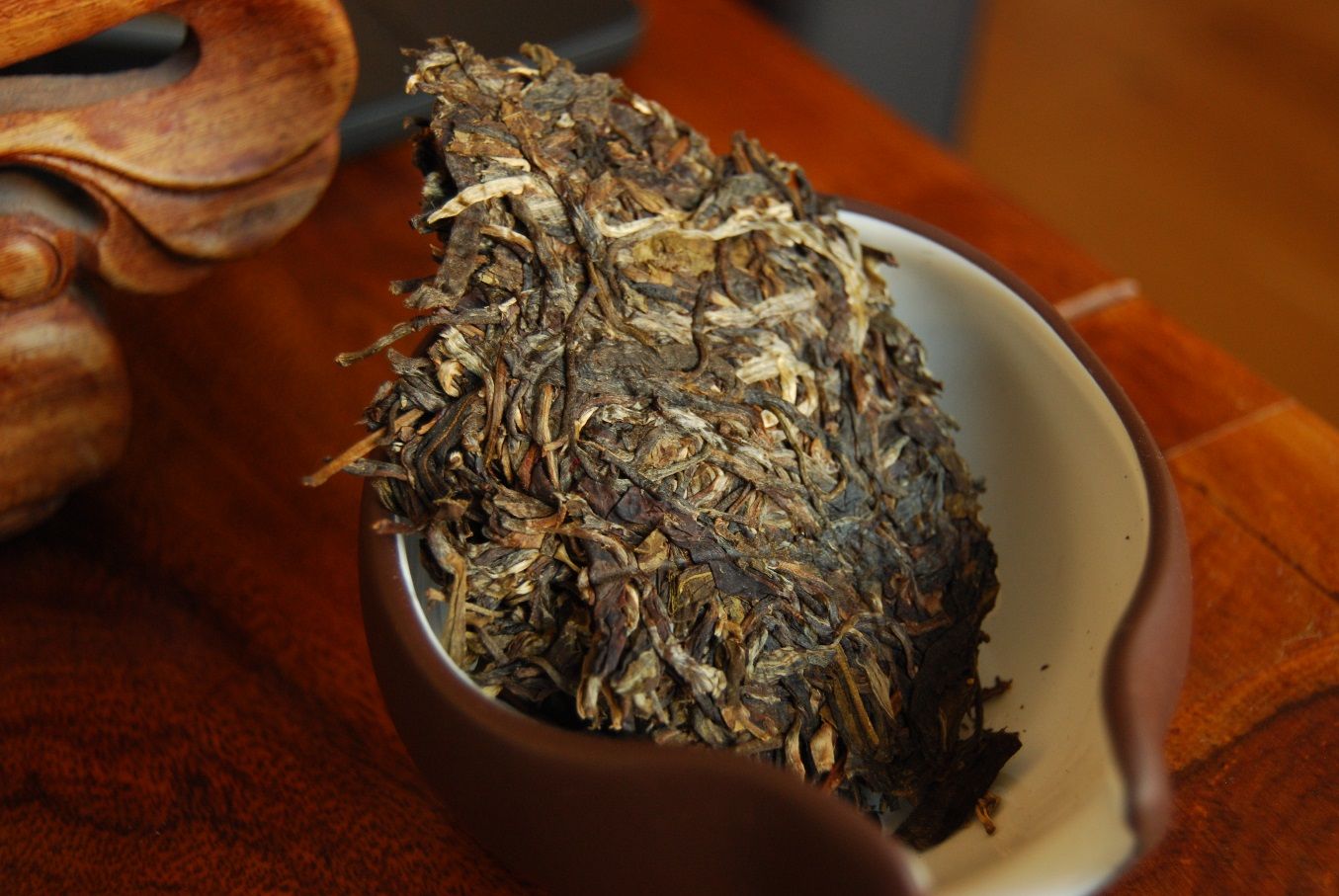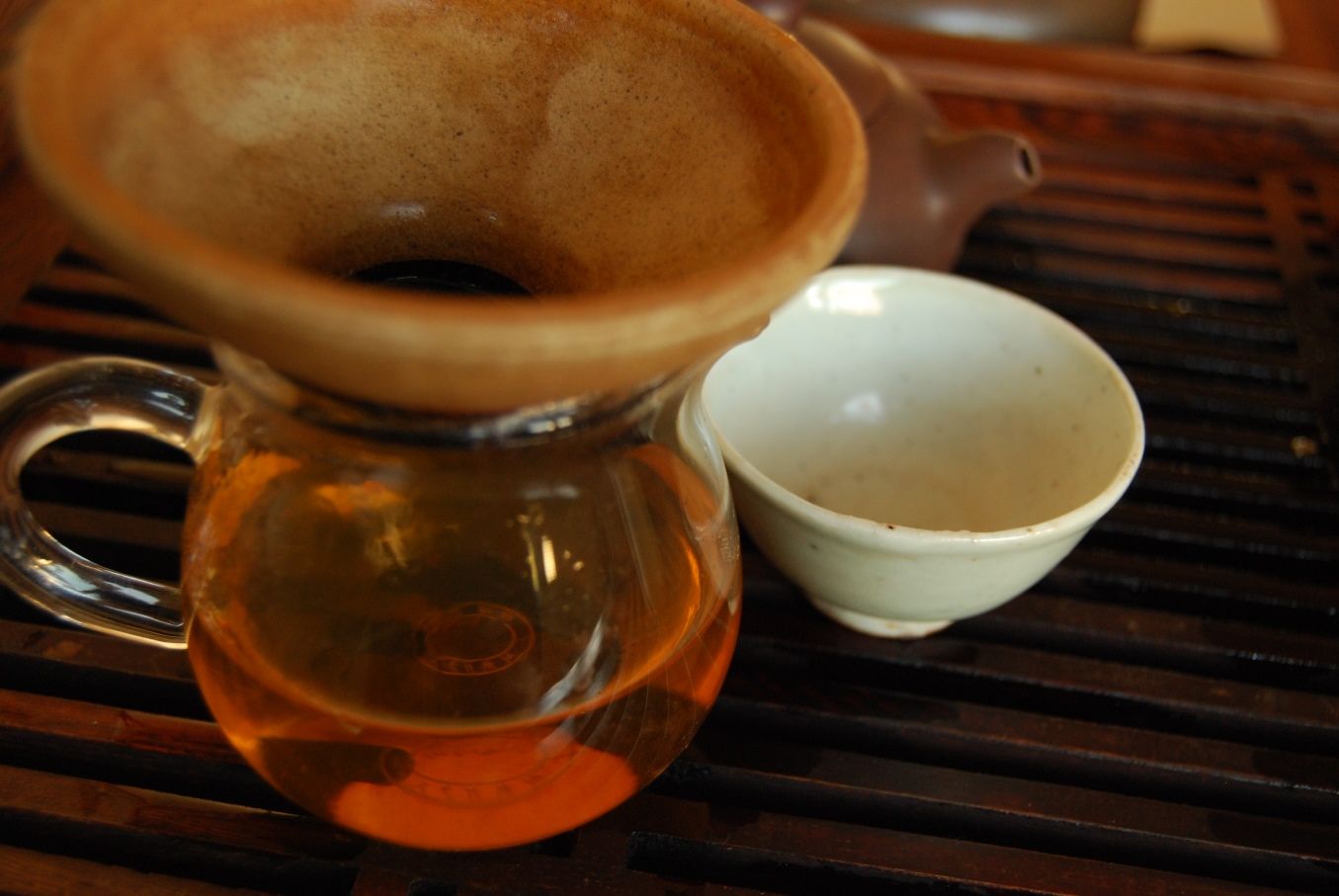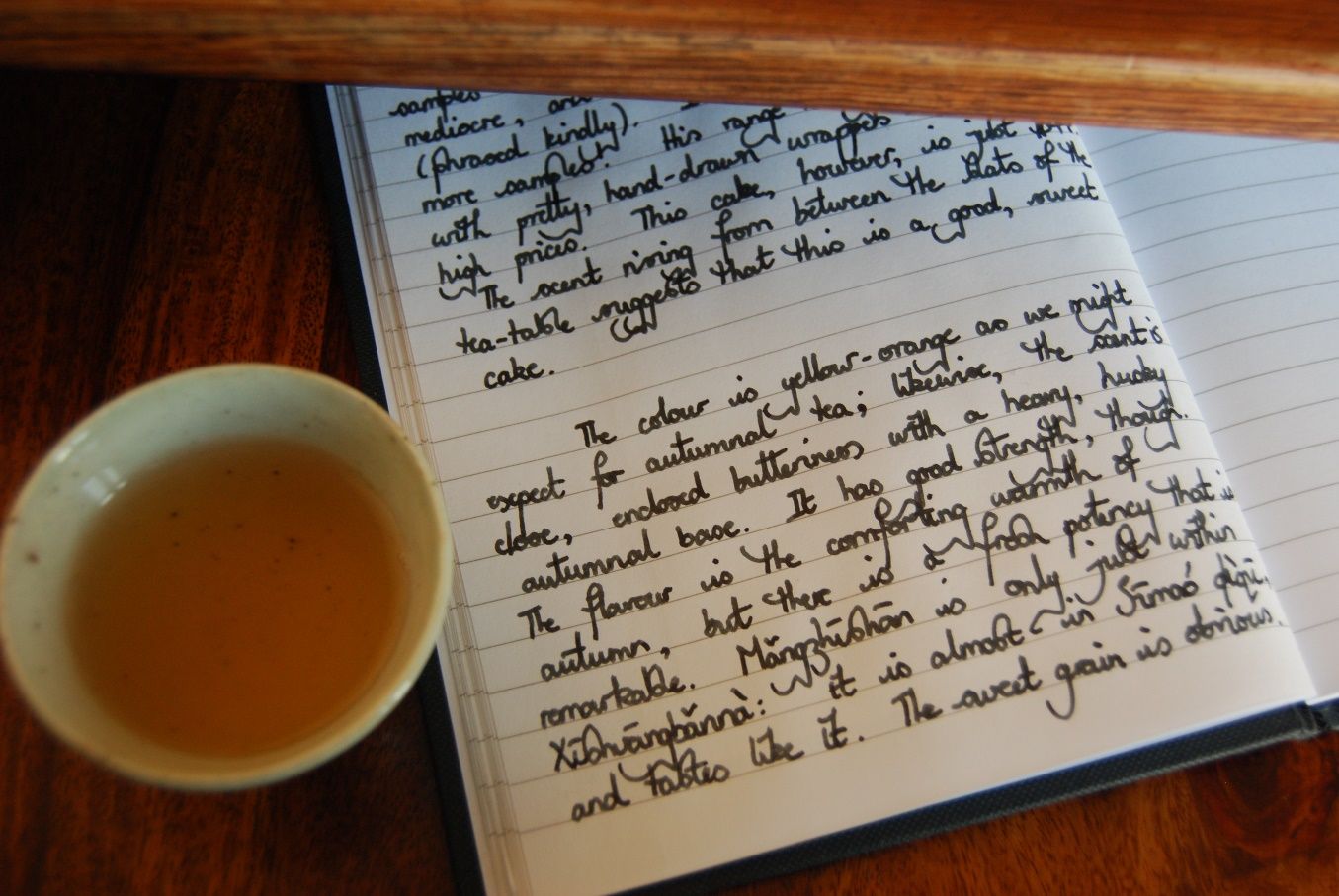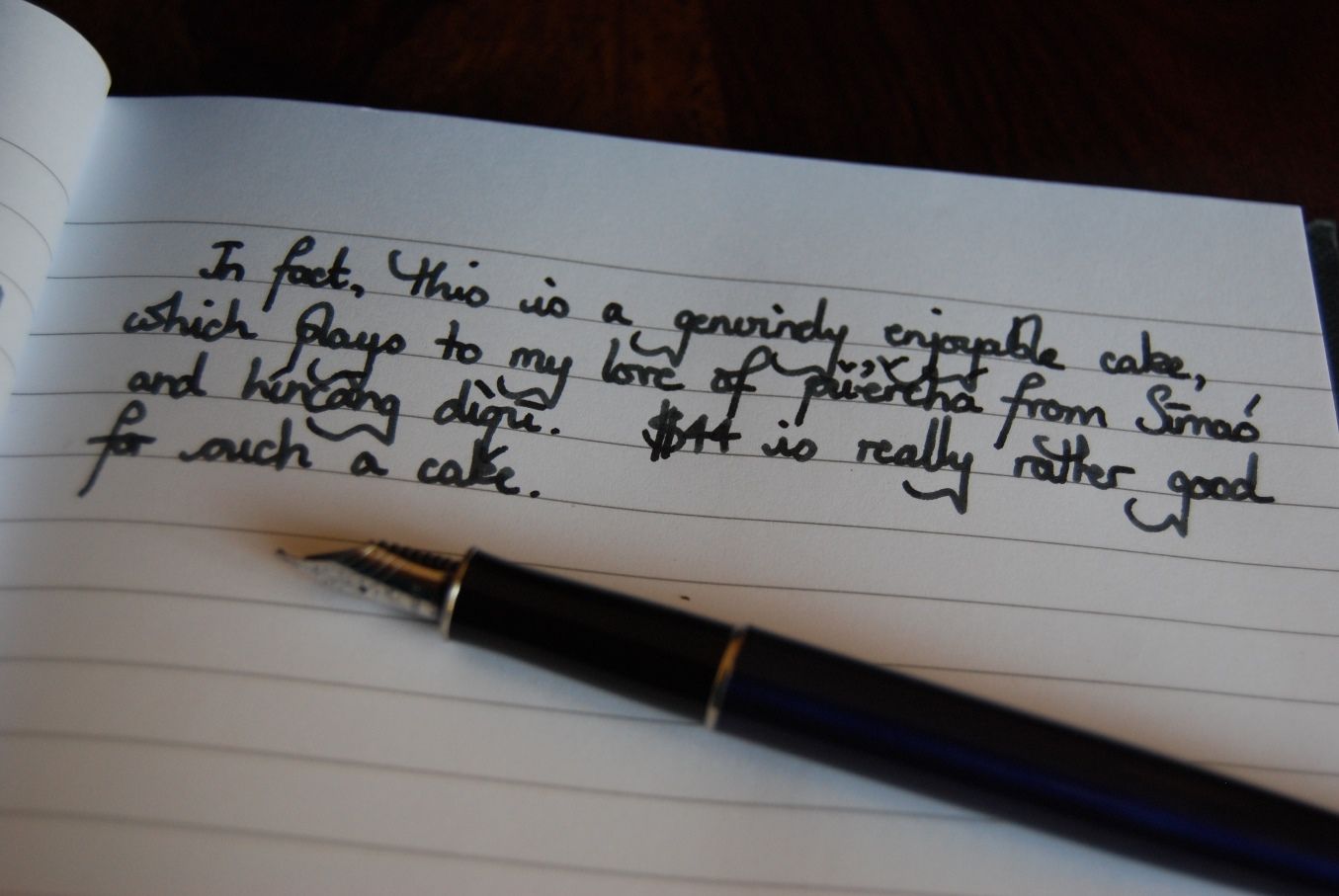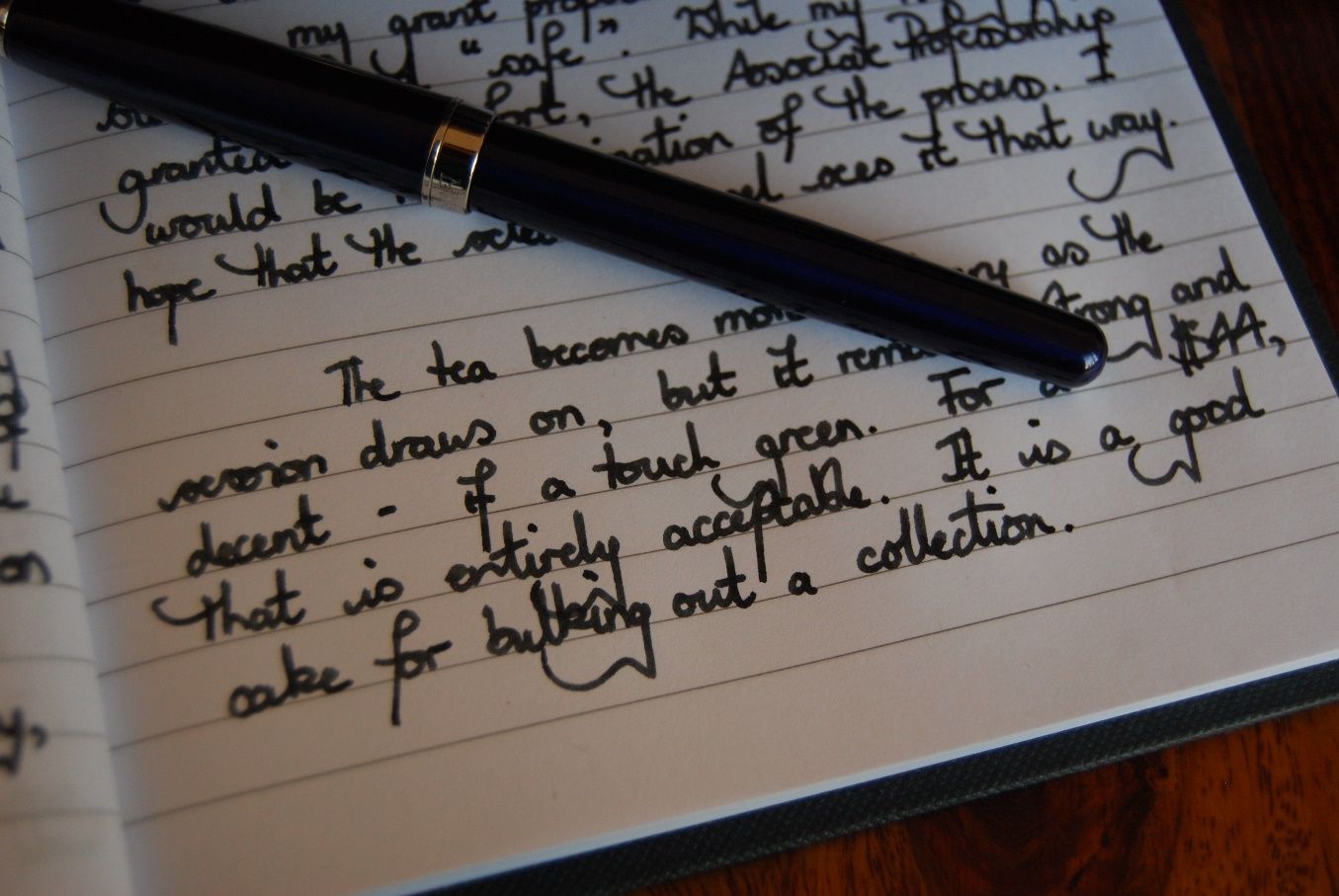It was a fine cake. I wrote of my love the cake before buying any and was subsequently denied the opportunity to own some. Now, looking at the version from the year after, I have that vital second chance. Let's see if the 2013 is up to the standard of the 2012 that I loved so much...
First, we encounter the price. This cake is a very, very reasonable $16/200g xiaobing. Chawangshop is one of the few remaining outposts of tight, low prices for pu'ercha, and I am building in my appreciation for their output year on year. This year, it seems as if we have Laos cakes on sale - and this is progressive tea salesmanship at its best.
The soup for this tea is a pollinated yellow, with a big, strong scent of grass - just as one would hope for Badashan tea. Pu'ercha from this area should be bigger and badder and rougher and tougher by definition. In the mouth, more grass, more sweetness; more throatiness with a long aftersweetness.
This tea comes from a small Bulangshan village. It is strong, clean, and enduring. Writing this article reminds me that I have not yet made a purchase. This is a fault that I quickly fix.
My first introduction to this tea came from The Jakub, who kindly brewed me a cup. "It tastes like old-fashioned tea" was my conclusion after a sip, and this held after my subsequent session at home with the sample that he then provided.
Be warned that I am a biased source: I very much enjoy Badashan cakes. This one, though, well - it's good. Perhaps even as good as that elusive 2012 cake...
Edit: this tea is the "2013 Laoyu Badashan" and not the "2013 Zhanglang Badashan" - thank you to Honza for spotting that before I bought the wrong thing.
Be warned that I am a biased source: I very much enjoy Badashan cakes. This one, though, well - it's good. Perhaps even as good as that elusive 2012 cake...
Edit: this tea is the "2013 Laoyu Badashan" and not the "2013 Zhanglang Badashan" - thank you to Honza for spotting that before I bought the wrong thing.

